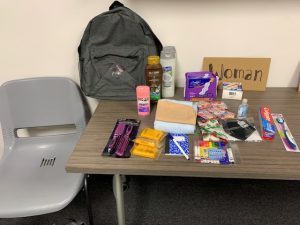Indigenous women in Canada face disproportionately high rates of incarceration. According to the Final Report of the National Inquiry Into Missing And Murdered Indigenous Women And Girls, Indigenous women make up 4% of the Canadian population, yet account for roughly 40% of the federal prison population. And these incarceration rates are rising faster than any other demographic in Canada. The overcriminalization of Indigenous women is a direct result of historic and ongoing colonial trauma and abuse.
The Thunder Woman Healing Lodge Society (TWHLS) works to break the cycle of Indigenous women’s over-representation in Canada’s prisons. TWHLS is Indigenous-led, and provides trauma-informed, culturally appropriate services for First Nation (Status and Non-Status), Inuit, and Métis 2SLGBTQIA+ (Two-Spirit, Lesbian, Gay, Bisexual, Trans, Queer, Intersex and Asexual) women who are exiting the justice system. TWHLS has had to rapidly adapt it’s services and expand it’s mandate to support both men and women being released from custody during the COVID-19 pandemic.
We spoke with executive director Patti Pettigrew about TWHLS's services and challenges during the pandemic, and what supports they need to continue their vital work.
1. How has Thunder Woman Healing Lodge Society had to adapt its programming and services during COVID-19?
TWHLS has a mandate to work with Indigenous and 2SLGBTIA+ women who are experiencing conflict with the Canadian justice system. They are women who are incarcerated and seeking release. We had to expand our mandate during the COVID-19 crisis to include men who are being released from custody. We also had to quickly establish a program that would meet their needs. Clients were being released without any place to live—and no food supports—and they had not been COVID-19 swab tested. For those who were released with a place to go, they needed transportation and food support, too. We provided hotel rooms, food supports, transportation and accompaniment for COVID-19 testing.
2. Can you tell us a bit about how COVID-19 is impacting your clients? What role do community and culture play in your programs and services?
 COVID-19 produced a greater anxiety among clients. While in prison, they were not able to physically isolate, which placed them at a greater risk of exposure. Once released, many faced homelessness and a lack of personal protective equipment and food. TWHLS supplied backpacks with that protective equipment and some personal products, along with traditional medicine pouches. The traditional medicines offer a sense of safety to Indigenous individuals.
COVID-19 produced a greater anxiety among clients. While in prison, they were not able to physically isolate, which placed them at a greater risk of exposure. Once released, many faced homelessness and a lack of personal protective equipment and food. TWHLS supplied backpacks with that protective equipment and some personal products, along with traditional medicine pouches. The traditional medicines offer a sense of safety to Indigenous individuals.
3. Are there certain vulnerable groups who are underserviced and/or who you worry about?
Indigenous women involved with the criminal justice system are always the last on the list for consideration and having their specialized needs met. They get released into vulnerable circumstances, like homelessness, which puts them at a greater risk of being trafficked, becoming victims of violence or even being murdered. They are at an increased risk of re-offending and being incarcerated.
4. What do we need to do to ensure we make an “equitable recovery” and what supports do you need for your clients in the coming year?
First and foremost, listen and act on the multitude of recommendations that have come out of the numerous inquiries. Support Indigenous initiatives. Programs and supports should be Indigenous-led and operated. TWHLs needs support to complete the actual building of the Lodge. In the interim, we need support to get more outreach and to hire staff, a housing worker and a volunteer coordinator.
5. Is there anything else you want donors to know?
TWHLS has a $3.5 million funding gap. This gap represents the cost of developing a Green building. TWHL is the first lodge of its kind in Ontario, and the third across Canada. The Lodge will offer programming and housing to Indigenous women who are exiting the criminal justice system. We need support to complete the building. If the Lodge was established during the COVID-19 crisis, we could have kept at least 24 women safe.



